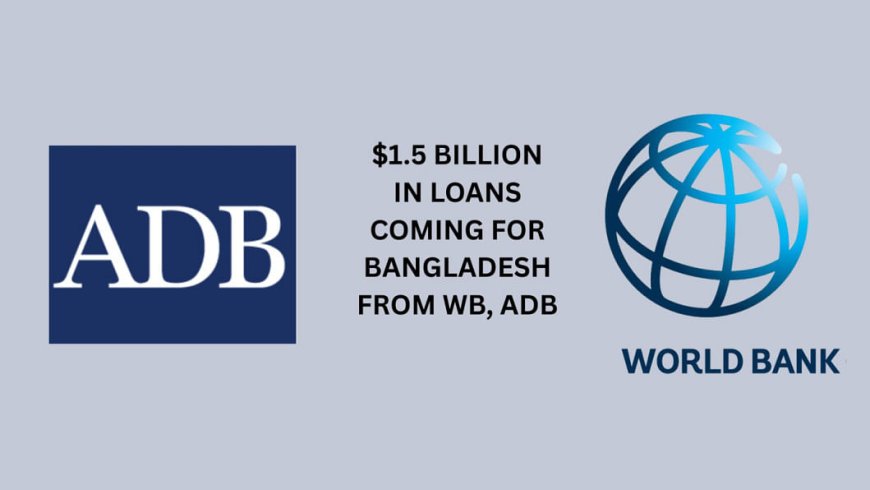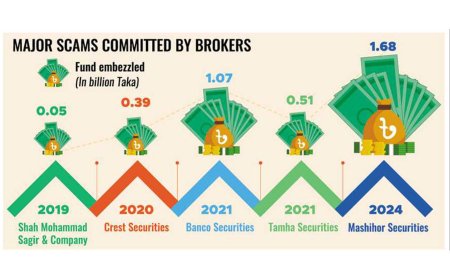Bangladesh to receive over $1.5 billion in loans from ADB and World Bank
ADB to provide $900 million, while the World Bank will offer $640 million.

ADB, WB Approve Over $1.5 Billion Loans for Bangladesh Amid FX Crisis
The Asian Development Bank (ADB) has approved a $900 million loan package for Bangladesh to support banking sector reforms and strengthen climate resilience. Of this amount, $500 million is allocated for stabilising and reforming the country’s banking system, while $400 million is designated for climate-resilient and inclusive development initiatives.
The $500 million policy-based loan aims to improve governance, asset quality, and financial stability in Bangladesh's banking sector, according to an ADB statement issued today. The programme is expected to enhance Bangladesh Bank’s liquidity management, strengthen supervisory capabilities, and introduce measures to address the high volume of non-performing loans.
"The banking sector faces key structural challenges, including poor asset quality, tight liquidity, and limited financial intermediation, which hamper financial inclusion," said Sanjeev Kaushik, ADB principal financial sector specialist.
On the same day, the World Bank (WB) approved $640 million in loans for two separate projects to improve gas supply and air quality in Bangladesh. With these approvals, Bangladesh stands to receive over $1.5 billion in fresh financing at a time when it has been grappling with persistent foreign exchange shortages for more than two years.
Separately, ADB approved a $400 million loan for the second phase of its Climate-Resilient Inclusive Development Programme (CRIDP), which supports Bangladesh's efforts to adapt to climate change, reduce emissions, and promote inclusive economic growth. The programme also includes $113 million in co-financing from Agence Française de Développement and $400 million from the Asian Infrastructure Investment Bank (AIIB).
“The programme will help Bangladesh achieve its climate goals more efficiently by improving coordination among government agencies and aligning activities with national policies,” said Sameer Khatiwada, ADB senior public sector economist. It aims to mobilise climate finance, strengthen adaptation across priority sectors, and accelerate actions to mitigate climate impacts.
As part of CRIDP, Bangladesh will establish the Bangladesh Climate Development Partnership to mobilise climate funds and enhance ministries' capacity to design, implement, and evaluate climate projects. The government will also update Dhaka's Strategic Transport Masterplan (2025–2034) and track renewable energy targets under the Integrated Energy and Power Master Plan to encourage greener transport and energy solutions.
Bangladesh remains highly vulnerable to climate change. Studies indicate that under high-emissions scenarios, the country could lose up to one-third of its GDP by 2070. Currently, tropical cyclones inflict about $1 billion—or 0.7 percent of GDP—in damage annually, while severe floods could reduce GDP growth by as much as 9 percent by 2050. By mid-century, Bangladesh could lose 17 percent of its land area and 30 percent of its food production, severely threatening food and nutrition security.
What's Your Reaction?






















































































